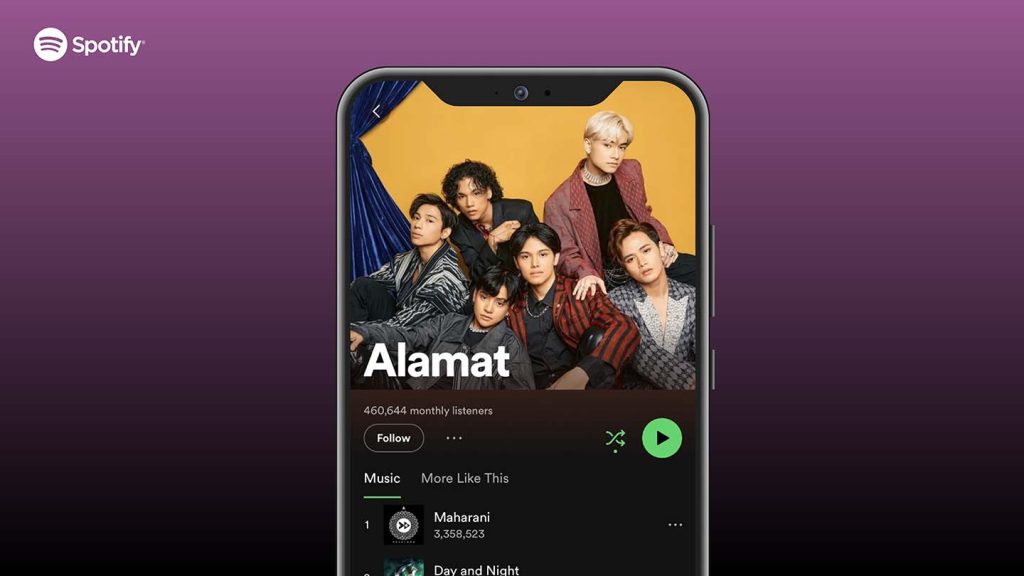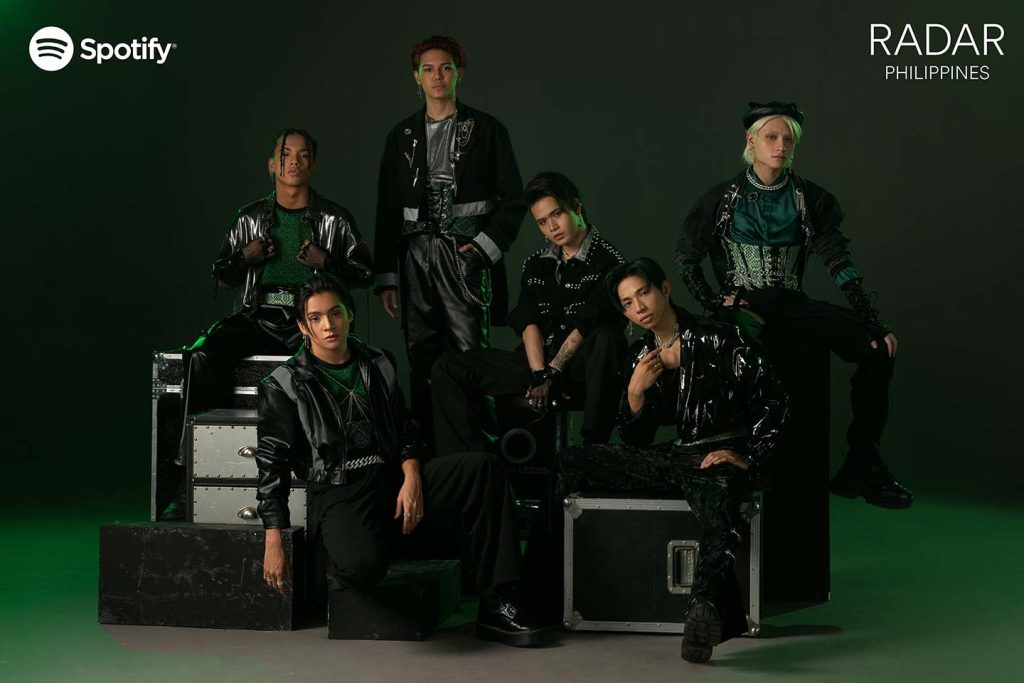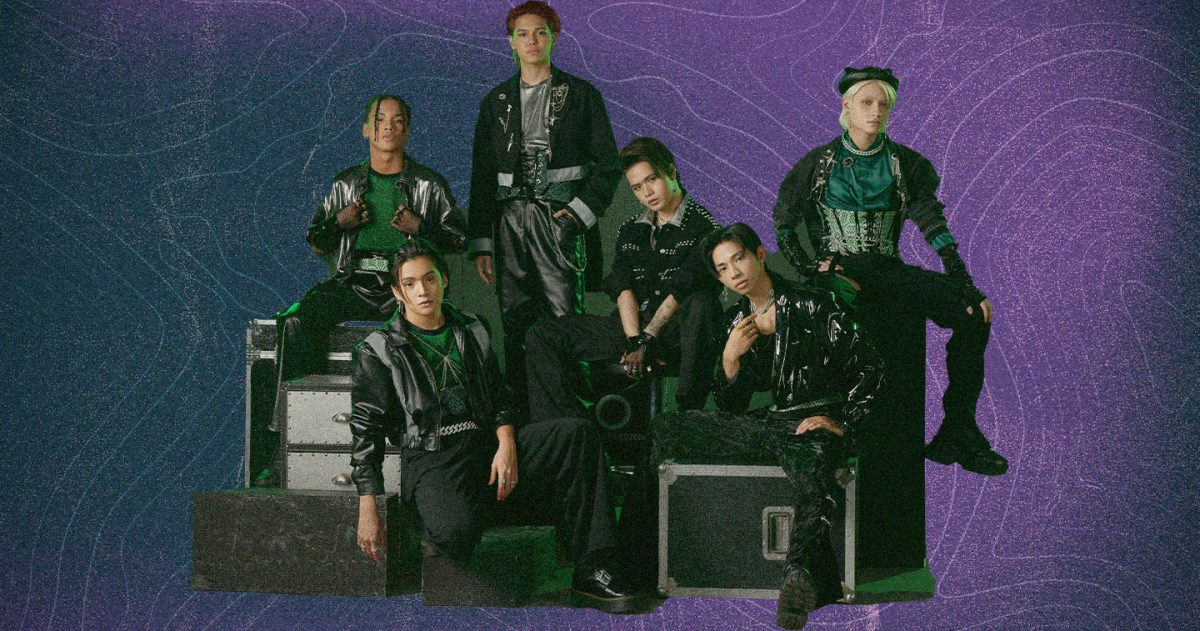MANILA, PHILIPPINES — While the world of mainstream music continues to put Western acts first when it comes to who to put in the spotlight, Asian pop is more than holding its own.
In the past decade, we’ve seen more and more artists from the region sell out huge international venues, amass dedicated fandoms, and climb the charts. While this is mostly the case with K-pop, more people around the globe are turning their heads toward all of Asia for hits. The global stage is getting bigger, and Pinoy acts are stepping up. The popularity of Filipino artists of all genres continues to grow in the international scene, but P-pop in particular, especially with sensations like SB19 and 4th Impact, has been on a steady rise to worldwide fame.

The overwhelming support that these P-pop groups from the past few years have gotten doesn’t come as a surprise. On top of the undeniable talent of these stars are Filipinos’ desire to embrace, reclaim, and spotlight cultural identity after many eras of Western talents getting most of the love, both from the international scene and Pinoys themselves. While each P-pop group killing it in the game is doing its part to represent Filipino identity, one group, in particular, is known for how much it integrates culture and heritage into its branding and ethos — Alamat.
adobo Magazine had the opportunity to chat with members Tomás, R-Ji, Taneo, Alas, Mo, and Jao, who shared their insights on representing Filipino culture and the diversity it holds, how the age of streaming continues to pave the way for their growing success, and how they perceive their place in the growing P-pop scene.
A cultural torchbearer from the very start
After the boy band debuted back in February 2021, it wasn’t long until they made a mark. They were dubbed the fastest-rising P-pop group for a reason: Alamat’s first single “kbye” immediately earned them a place in Billboard’s Next Big Sound chart. It wasn’t long until their fans, called Magiliws, took notice and started following the group.
“Since our debut with ‘kbye,’ it has felt great to be recognized not just in the Philippines but internationally as well. That’s all thanks to the love and support of Magiliws,” the group shared with adobo Magazine.
From the get-go, Alamat didn’t wait to go all in on their heritage-forward branding. The “kbye” song and music video release alone was more than enough to introduce the boy band as a group that pulls out all the stops in infusing Filipino culture into their group identity.
While the debut song may seem like your usual OPM breakup song, the way the group tackled it came with surprises that showed they mean business in adding a deeply Pinoy twist into everything they do.
Not only did the music video show sets dressed up in barangay party decor and Filipino school banners, but the boys also dressed themselves up in outfits influenced by traditional silhouettes and textiles. The song itself was a tribute to the multilingual celebration that is the plethora of Philippine languages. While the majority of the lyrics are sung in Filipino, there were also verses in Ilocano, Waray-Waray, Bicolano, Kapampangan, Hiligaynon, and Bisaya. To take it further, Alamat even incorporated folk dance moves into the choreography.
“Our craft seeks to showcase Filipino culture through our music and performances on a global stage,” said Alamat. “That was just the beginning, and we still have so much to show. We will continue to work hard.”
Making storytelling undeniably Filipino
Since their successful debut, Alamat hasn’t reeled in the cultural influences that shape who they are. The boys continue making songs about topics people have gotten accustomed to, like attraction and relationships. What sets them apart, however, is the storytelling approach they bring to each track, one that’s colored with the specificity and resonance that local tradition, history, and folklore bring.
For example, “Day & Night,” when played in the background, can be written off as just another song about kilig-worthy experiences with a summer crush. A closer look, however, reveals there’s more attention to Filipino heritage put into the crafting of the song that meets the eye.
“The instrumental on the music was intended to reference a Magindara’s sound or voice,” they shared, unpacking a bit of the creative process behind the song. A Magindara is a guardian water deity in Bicolano mythology, similar to a sirena or mermaid, and aptly captures the alluring love interest persona in the song in the context of Filipino folklore.
“The song was also co-written by Ms. Therese Langit, a famous songwriter in the Visayan region, and it narrates the story of a fisherman who forms a friendship with a Magindara. We also incorporated some Filipino instruments, such as Kudyapi, Angkling, and Bamblong.”
Seeking out collaborators and influences beyond Metro Manila is nothing new to them either, as one may be able to infer from the way they’ve been singing in multiple languages in their songs. To Alamat, when they say they want to champion Filipino culture, it’s clear that they’re aware of the plurality that comes with it — something represented in the varying cultural backgrounds of the members themselves.
“Filipino culture is very colorful as we also have different subcultures that have unique characteristics from one another. It’s interesting because somehow we feel like we represent that, considering that we also came from different ethnic backgrounds,” the group expressed. “We think that being a multiethnic group is an advantage for us. We are able to form rich and diverse ideas because of it [and] get perspectives from Ilocano/Cordilleran person (Taneo), Bicolano (Tomas), Waray-Waray (RJi), Mindanawon (Alas), Kapampangan (Jao), as well as Fil-Am (Mo).”
The group’s multiethnic background isn’t the only reason that Alamat incorporates this much cultural and historical detail into their work. For them, it’s as simple as being aware of the richness of Filipino culture and drawing inspiration from that. “Our history and culture as Filipinos is very unique and Filipinos are really good storytellers and emotional,” the group said. “Representing our history and culture through our music is an amazing experience. We’re able to combine the rich Filipino heritage with the latest global trends and create a unique sound.”
“We are honored to be part of the community that is pushing OPM forward by blending traditional and modern elements of Filipino culture with global influences through our music, dance, fashion, and iconography.”
Building fandom and community in the digital age

There is no doubt that the streaming era has played a significant role in their career. It’s evident that their success is first and foremost thanks to their talent and the ingenuity they display each time they find new ways to embed Filipino influences into their work. But even the boys themselves are aware of just how much of their success is possible because of digital platforms that make it easier for listeners to expand their horizons beyond Western music and genres.
“We [do] think that the age of streaming has made it easier for us and other Filipino artists to launch our careers and reach a wider audience,” Alamat shared. “Streaming helps fans discover new Filipino music, as they can access a variety of genres and styles from different regions and cultures, [and] it has opened up new opportunities and possibilities for Filipino music, and we are grateful to be part of this era.”
It’s this paved path to reaching fans all over the world, more than anything, that makes Alamat appreciate being part of this age of music. When people create art based on culturally specific inspirations and experiences, it can be hard to get a wider audience to notice them. However, wih streaming platforms, such as Spotify in Alamat’s case, spotlighting acts hailing from all cultures, that hurdle starts to shrink.
“Being part of the RADAR lineup this year, our dreams got bigger with Spotify by helping us be discovered globally and connect with fans no matter where they are,” the group shared. “With programs like [this,], the support that we are receiving is way beyond just music. Spotify also gives us more avenues where we can connect closer with the fans and spread the magic of P-pop around the world.”
Streaming’s ability to heighten that connection between them and Magiliws is especially crucial to Alamat. After all, for the group, “[Music aside,] the biggest asset of P-Pop is the very passionate fans. Without them, we don’t think we are able to get the recognition that we are receiving, and P-Pop will never thrive the way we are seeing it right now. So, big thanks to our Magiliws and to all the P-Pop fans out there.”
A place and future in the growing world of P-pop
Even as new groups continue to debut and the audience for the genre grows, Alamat seems confident in its place in the dynamic P-pop scene, and it’s not hard to see why. With their multilingual songs, unique concepts, and unforgettable iconography and branding, Alamat proves how much the boys are deserving of their immediate rise to fame and the group’s place as one of the Philippines’ more established P-pop acts.
“P-pop is still growing, [and] we were able to find our identity as a group, showcasing Filipino history and culture in our music which I think sets us apart from the other artists locally and internationally,” said Alamat. “We are proud to be part of this music genre and sub-culture that showcases Filipino talent and identity.”
It’s clear that, to the members of Alamat, regardless of where their career takes them next, the music they make and the passion they’ve shown in creating it — and all the visual concepts and performances that further bring their songs to life — will speak for itself in the generations to come.
“We love making music because it lets us share our feelings, stories, and who we are as Filipinos. There are so many things that make us different, like our languages and beliefs, but music is something that we all understand. Music can bring us together because it makes us feel the same things no matter where we come from or what language we speak,” they said. “Our talents can keep our heritage alive for the next generation and other people to enjoy and learn from. No matter how things change in the future, or how history is told, our art and music will always show how we rock our culture and tradition.”
For them, in celebrating specific identities through something as universal as music, gaps are bridged, cultures are understood, and histories are remembered. And that’s what Alamat has been about since day one.








